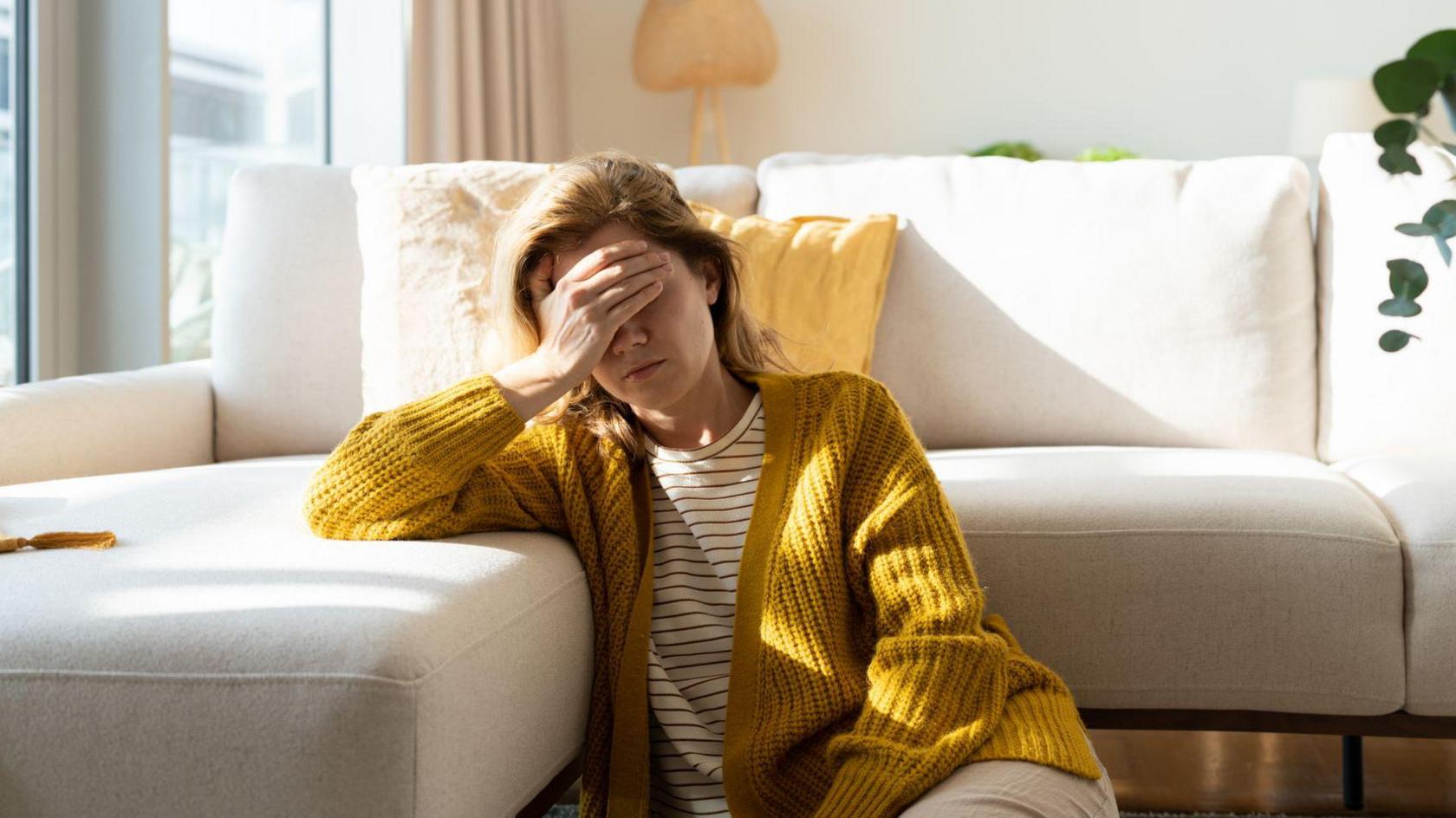Can anyone become an influencer? Three people with zero followers find out
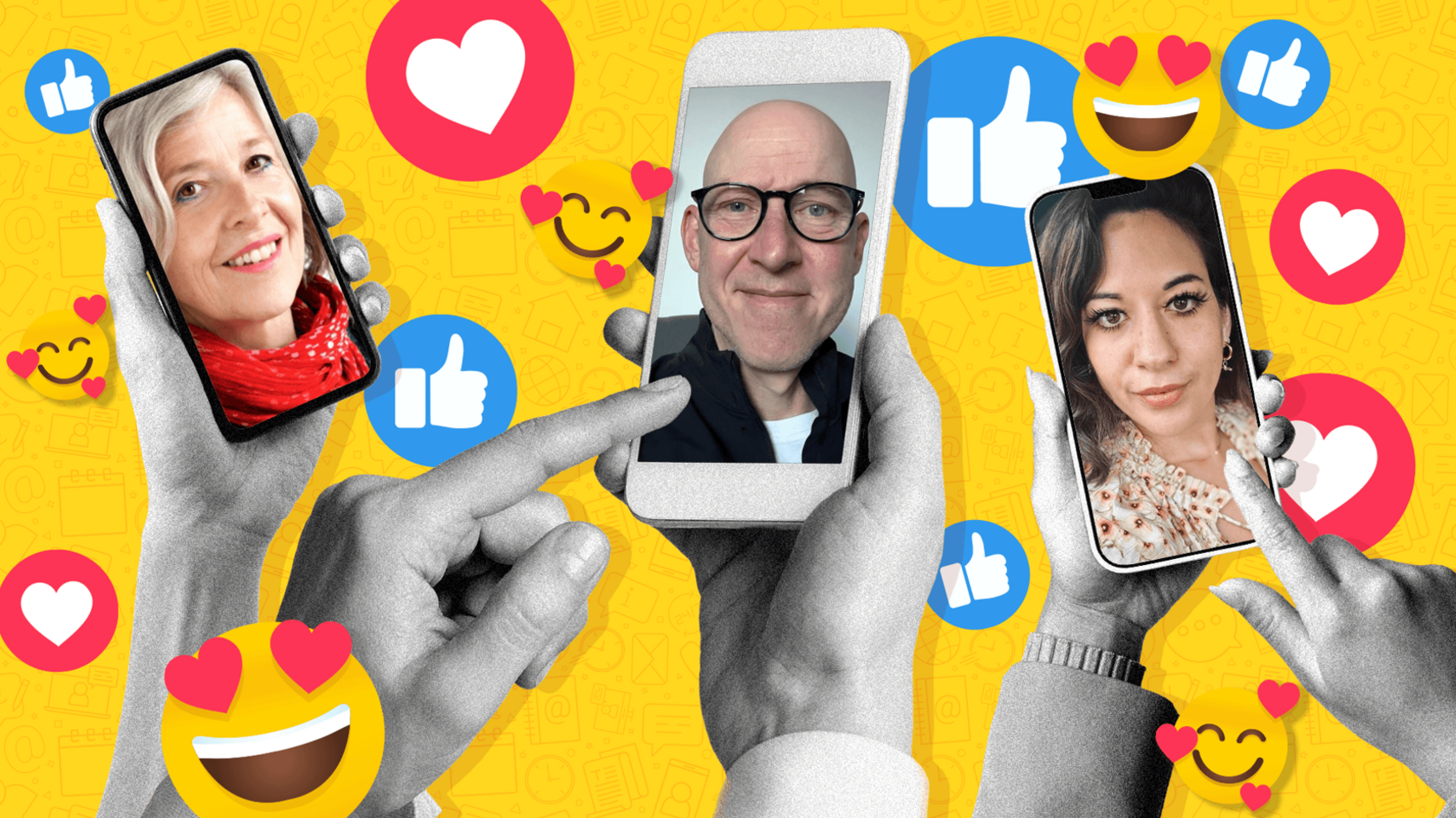
Will social media embrace these novices? Or will algorithms, online scrutiny and the race to be seen swallow them up?
- Published
Social media is a minefield. It's a place where people battle for likes, fight to be noticed, risk being cancelled and dream of going viral overnight.
For a lucky few, it's a lucrative career path - the creator economy is expected to be worth almost $500bn (£372bn), external by 2027 - but for most, it's a confusing and unforgiving space where the algorithm decides who gets seen and who stays invisible.
So how hard is it really to break through? Three passionate people with no social media accounts took on the challenge of turning their talent into social media traction in the space of just three months.
Emily, a potter and stroke survivor, Alun, a historian, and Danyah, a theatre performer, tracked their journey on the ups and downs of trying to find an audience and surviving the emotional rollercoaster that comes with chasing online fame.
Listen to Emily, Alun and Danyah tell their story on Radio 4'sThe Great Influencer Experiment here
'Engaging with comments is overwhelming'
Before she became a potter, Emily dreamt of performing on the stage but a stroke at the age of 26 changed everything, and her cognitive understanding is not what it used to be.
Pottery gave her a new purpose and expressing herself creatively felt like a form of therapy.
Emily rarely uses social media but decided to create a TikTok account in order to "reach, inspire and support people who have been in similar positions to me".
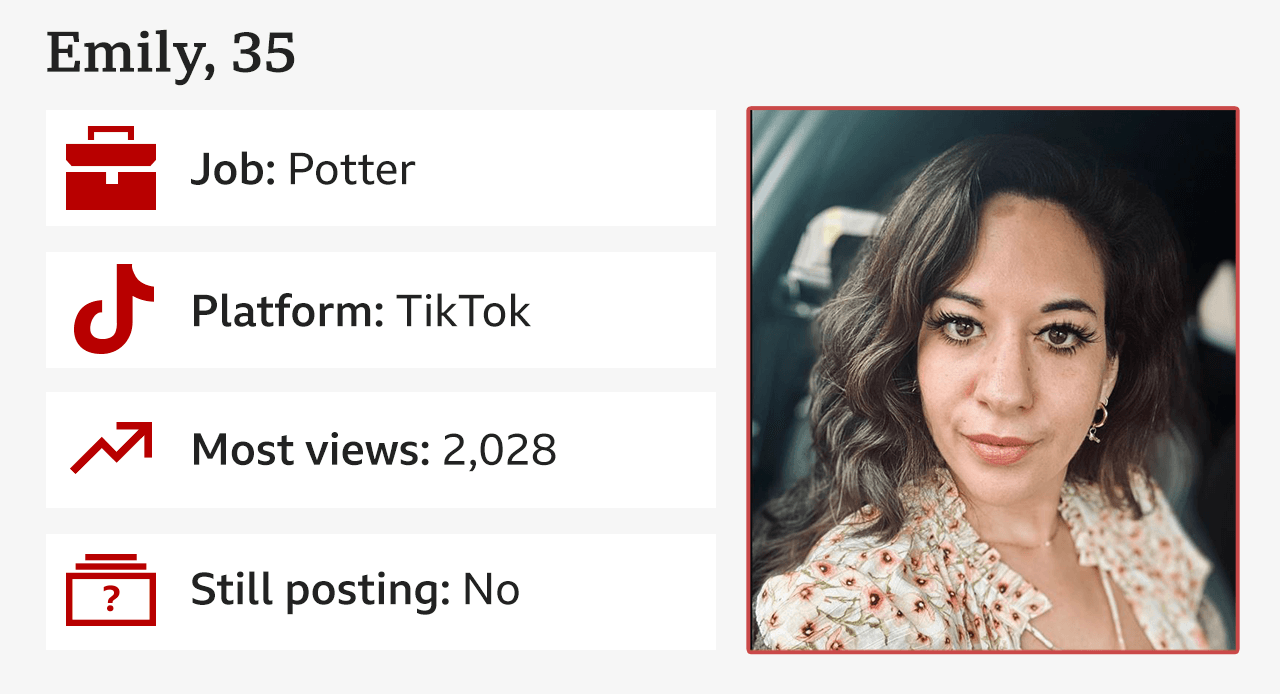
Her first video has just two views and subsequent content about pottery and her cat also don't perform well.
After weeks of silence and doubt, Emily's video about how pottery saved her life reaches thousands and other stroke survivors message her to praise her content.
She is proud of the impact she makes. "That comment meant more than a thousand likes as I actually resonated with someone and that's more valuable."
The success of her video comes with an unexpected burden: she is overwhelmed with the responsibility of engaging with comments.
Emily also struggles to make her content feel authentic - every time she speaks to the camera she feels as if she's putting on a performance.
"I don't feel like I'm doing myself justice and I'm disappointed in what I'm making," she says. "I feel like a bit of a fraud."
Addressing sensitive topics such as recovery from a stroke means the stakes are higher for Emily.
"There is less room for error and you don't want to say anything that could be misconstrued and that can be hard to think about constantly," she says.
Near the end of the experiment, Emily is dealing with issues in her personal life and finds it a challenge to keep creating content. She decides to take a break from social media but may return in the future.
'Chasing views can impact your self-worth'
Alun is a senior lecturer in history who specialises in early modern medicine and has devoted years to researching the cultural history of beards - a niche that he realised was lacking on social media.
He agreed to be part of the experiment as he felt he had a duty as an academic to educate people.
His first video on why he loves history has a couple of hundred views and that spurs him on to start posting every few days.
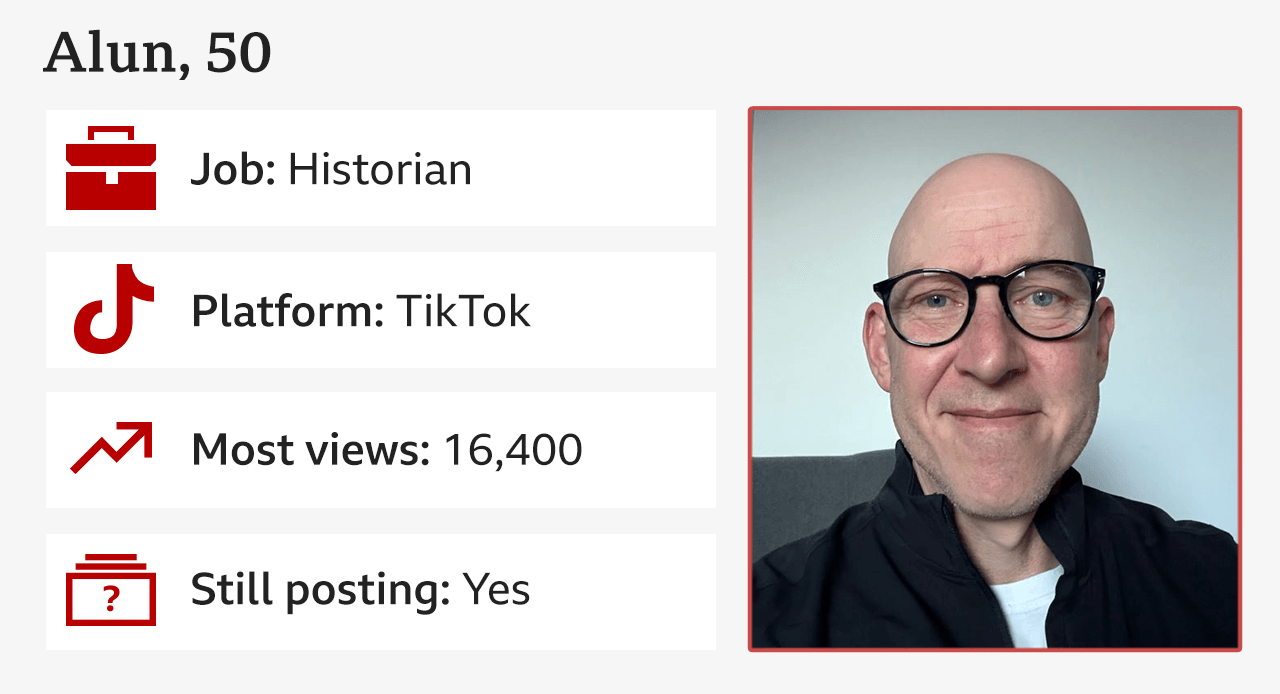
His videos do well but none have more than 1,000 views, something that becomes increasingly frustrating for him, and chasing the numbers takes an emotional toll.
"It starts impacting your self worth," he admits. "If you don't get the views, you start thinking you're doing something wrong and people don't like you."
Finally, a video gets more than 10,000 views but Alun doesn't feel the elation he thought he would.
"I was actively looking for more views and I lost my academic integrity. I crossed a boundary and oversimplified some information and I feel a bit dirty now."
At the two-month mark, Alun is posting on TikTok every other day but has recently found himself on the receiving end of cruel and spiteful comments about his lack of hair and eyebrows due to alopecia.
"I'm finding it harder to deal with those comments than I might have thought," he admits. "It's made me more conscious of my appearance."
He decides to confront the trolls and makes a video explaining his condition.
At the same time, the university, where he lectures, starts sharing his videos as promotional material to prospective students which turbo-charges his reach.
"I've had 350,000 views in total and in comparison, my academic articles are read a couple of hundred times a year," he says.
Creating content won't replace his career but it certainly amplifies it and Alun is sure he will continue posting online.
'It's taking up a massive amount of time - it feels like an addiction'
For theatre performer and producer Danyah, the challenge is almost the opposite - she's used to performing but in front of a live audience, not an online one.
She joins the experiment as she wants to bring people together. She worries people are losing in-person connection as they're chronically online.
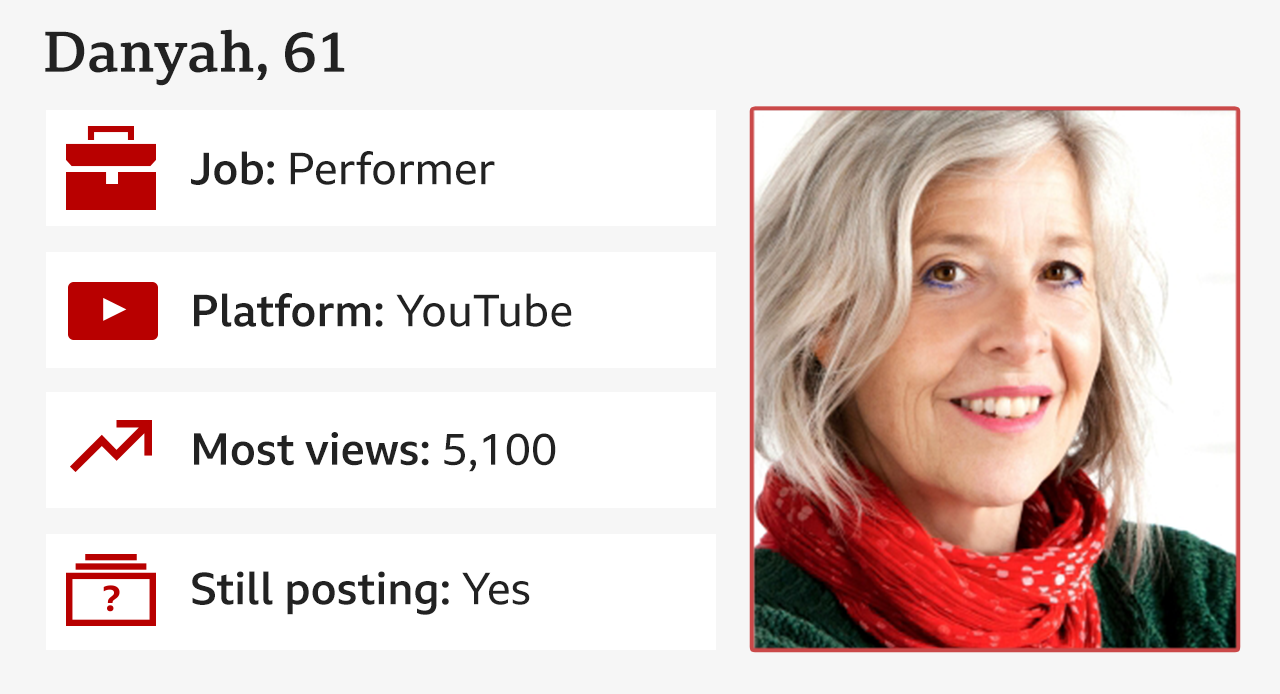
Danyah downloads YouTube and compared to Emily and Alun, her content is slower and longer. Her first video is eight minutes long.
She's posting regularly - from meditation guides to leaving poems across London - but the views aren't pouring in.
Despite this, she's having a blast.
"It's so much fun and I keep thinking about what I'm going to share next," she says.
Her enthusiasm doesn't last long and soon, she finds herself down a rabbithole of trying to understand the technical side of social media. She even buys a book on how to get a million followers.
In a month, she's posted 50 videos and admits it's mentally draining.
"It's taking up a massive amount of my time - I'm living and sleeping it, it feels like a drug or an addiction," she confesses. "I'm worn down by the grind of it, every day I'm thinking about content."
By the third month, the numbers are slowly rising and she's receiving many kind comments.
Similar to Alun, she's also discovered how an increased social media presence can boost her work - she's selling more tickets for her shows and workshops.
Danyah is trying hard not to take the number of views too personally and though the rewards have been slim, the hope of success is enough to keep her going beyond the experiment.
Related topics
- Published30 August
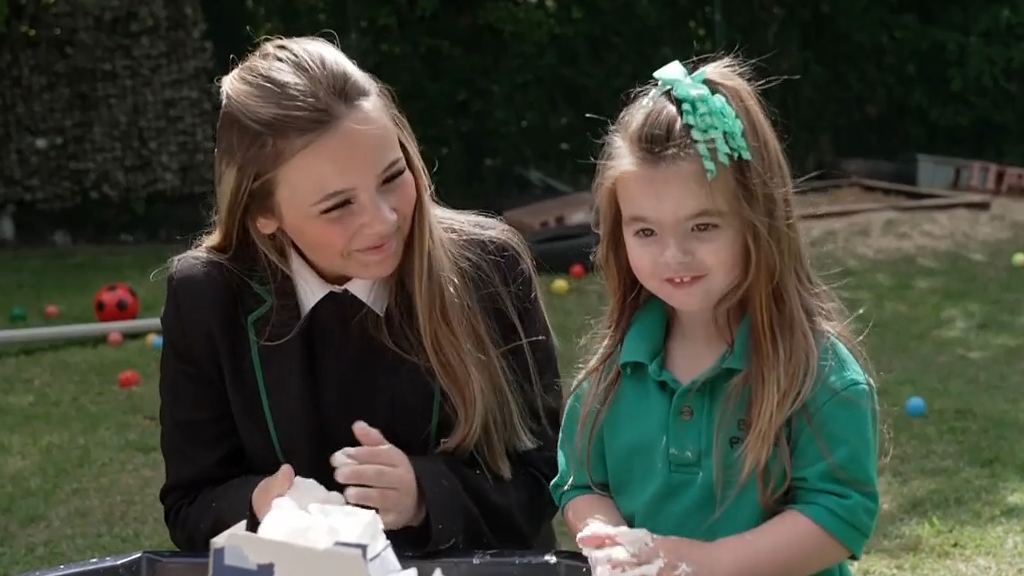
- Published11 September
